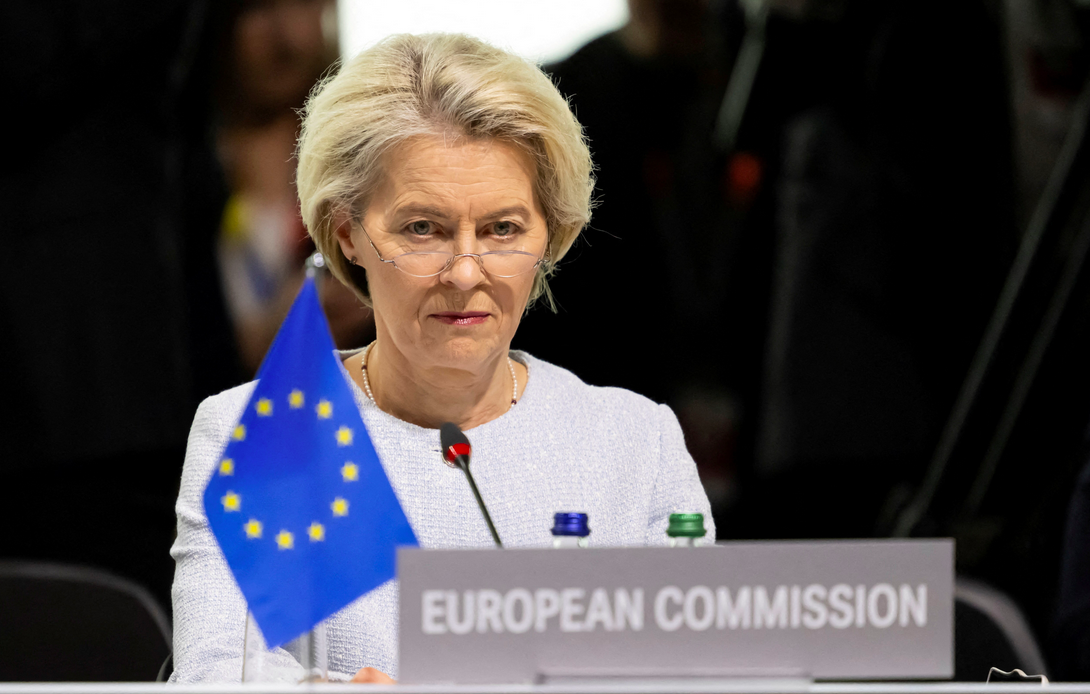
The European Union is teetering on the edge of a precipice, and its leaders know it. On Wednesday, the EU Commission issued a chilling directive: every citizen must stockpile food, water, and essential supplies to survive at least 72 hours of total disruption.
This isn’t a drill—it’s a grim acknowledgment that war and chaos are no longer distant threats but looming certainties. The 18-page manifesto, cloaked as a “preparedness strategy,” reads less like a precaution and more like a battle plan for a continent bracing for impact.

BYPASS THE CENSORS
Sign up to get unfiltered news delivered straight to your inbox.
You can unsubscribe any time. By subscribing you agree to our Terms of Use
The document doesn’t mince words. “Europe is facing a new reality marred with risk and uncertainty,” it declares, painting a dystopian vision of a continent under siege. Russia’s aggression isn’t a distant rumble anymore—it’s a battering ram at the gates. Critical infrastructure is being targeted, cyberattacks are escalating, and geopolitical tensions are a lit fuse waiting to blow. The EU Commission isn’t asking citizens to prepare out of caution; it’s a desperate plea to survive the opening salvo of a conflict they see hurtling toward them.
14 Nations Sign WEF Treaty to Ban Natural Conception in 2030
And it’s not just Russia keeping EU leaders awake at night. Across the Atlantic, Trump’s America has turned from ally to antagonist, leaving Europe to pay its own bills. The result? A frantic scramble to arm up, shore up defenses, and ready the population for a world where self-reliance isn’t optional—it’s the only lifeline left.
The EU’s survival blueprint is as practical as it is terrifying. Every household must hoard enough supplies to weather three days of chaos—food, water, medicine, blankets, batteries, the works. “In the case of extreme disruptions, the initial period is the most critical,” the document warns. Translation: when the bombs drop or the lights go out, you’re on your own. Emergency services won’t save you; your neighbors won’t share. The EU wants you psychologically steeled for a nightmare where society frays and survival hinges on what’s stashed in your basement.

This isn’t about weathering a storm—it’s about enduring the collapse of everything Europe has taken for granted. The Commission even wants “preparedness” drilled into schoolkids, teaching them to spot disinformation and steel their minds against the propaganda wars already raging. It’s a generation being groomed not for peace, but for battle.
Leaders Who Want War?
Here’s the kicker: EU leaders aren’t just reacting—they’re orchestrating. Germany’s updated war plans last June, unveiled by Interior Minister Nancy Faeser, laid bare the bloc’s mindset: arm up or be crushed. Ursula von der Leyen, the Commission’s steely president, doubled down Wednesday, insisting that “new realities require a new level of preparedness.” But her words drip with more than urgency—they hint at intent. Why else push this hard, this fast, unless they’re not just fearing war but preparing to wage it?
The EU’s rhetoric screams inevitability. They’re not rallying for peace talks or de-escalation—they’re stockpiling, militarizing, and conditioning citizens for carnage. The Trump factor only fuels the fire, giving Brussels the perfect excuse to flex its muscles and rally the bloc under a banner of “resilience.” It’s almost as if they’re daring Russia—or anyone else—to make the first move.
For the average European, this is a gut punch. Gone are the days of carefree summers and borderless dreams. Now it’s canned goods, flashlights, and a crash course in self-preservation. The EU’s 72-hour mandate isn’t a suggestion—it’s a warning that the first three days of hell will decide who lives and who doesn’t. And behind it all, leaders in Brussels seem less like reluctant guardians and more like architects of a war they’ve already accepted as their legacy.
So, stock up, Europe. Your leaders see the storm coming—and they’re ready to ride it, no matter the cost. The question is: are you?

